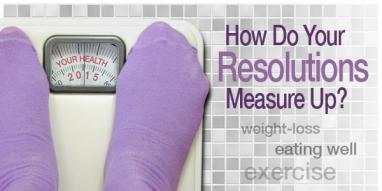
Each January, countless Americans begin the year by making promises to improve their lives or the lives of their family. Many New Year’s resolutions involve ways to improve health. A list of the most popular resolutions according to U.S. government sources includes: lose weight, eat healthy, get fit, stop smoking, and manage stress.
To achieve these goals, an increasing number of Americans look to dietary supplements for help. But, it is important to be an informed consumer.
A recent survey by Consumer Reports shows that many Americans are over confident in the safety and efficacy of dietary supplements because many assume these products have been approved by the FDA. However, the FDA regulates dietary supplements like a food, not like pharmaceuticals.
Unless it is a new dietary ingredient (introduced to market post 1994), there is no pre-market approval for dietary supplements, meaning manufacturers do not have to show evidence of safety, effectiveness or quality before selling their products in the U.S. Instead, manufacturers are expected to conduct their own tests and have evidence to support claims if challenged. Unfortunately, some bad actors abuse the system to pursue financial gain – either by cutting corners or intentionally adding banned substances.
Quality results are unlikely to come from poor quality products, so to help determine if your supplement measures up, USP offers these tips.
1) Look for dietary supplements whose quality has been verified by a third party
Consumers aren’t the only ones concerned about the quality of supplements. The Children’s Hospital of Philadelphia (CHOP) recently implemented a new policy discouraging patients from using most supplements and limiting the dietary supplements included in its official formulary to those that meet strict quality tests:
“Most people assume that supplements they buy at the health food store or online are strictly monitored or are safe because they are ‘all natural’,” said Sarah Erush, PharmD, BCPS, Pharmacy Clinical Manager and a member of the hospital’s Therapeutic Standards Committee. “But supplements are only subject to FDA review if an adverse event is reported, so there are many for which we have no reliable data. We’d much rather treat children with what we know works than provide them with a substance that may at best do nothing, or at worst, cause harm.”
For consumers looking to buy a quality supplement, CHOP recommends its patients look for USP Verified supplements. “USP-verification acts as a gold standard indicator for quality of a DS product in the marketplace today” explained Erush. And “for the retail customer, USP-verification is the most readily recognizable signature of quality, as each bottle carries this stamp.” A list of USP Verified supplements is available on the USP website.
2) Don’t be tempted by claims of fast acting or dramatic results
“If the effects promised on the packaging advertise immediate and drastic improvement of whatever condition they are targeting, the dietary supplement is either spiked with a synthetic chemical, or is an example of false advertisement,” said Mr. Bzhelyansky. “It is important for the consumer to realize that the logic of using dietary supplements is quite different from that applied to prescription drugs: they are not supposed to result in fast and dramatic outcomes; they are the turtle not a rabbit.”
3) Talk to your doctor or pharmacist before taking a supplement
“Consumers often use dietary supplements without consulting a health care professional. Most over-the-counter medications have labels that warn of potential drug interactions or other side effects, but many dietary supplements do not. That is why it is especially helpful to consult a doctor or pharmacist when choosing a dietary supplement,” explained Dr. Nandakumara (Nandu) Sarma, Director of the Dietary Supplements program at USP and a trained pharmacist. “Not only is the pharmacist a specialist in medications, their interactions and effects on the body; pharmacists also have access to databases that can check for potential interactions between your prescription medications and any other medications or supplements you take.”
4) Educate yourself
There are a number of reputable, scientifically sound resources for information about diet, health and how to best incorporate quality supplements into your diet. Some we recommend are:
- National Institutes of Health (NIH)-Office of Dietary Supplements
- USDA/USHHS Dietary Guidelines for Americans
- Food and Drug Administration (FDA)
Following these four recommendations, could not only help improve the outcome of your health goals, it could help you meet another popular New Year’s Resolution – saving money.
Visit http://www.usp.org/usp-verification-services/usp-verified-dietary-suppl… to learn more about USP Verified Dietary Supplements.


